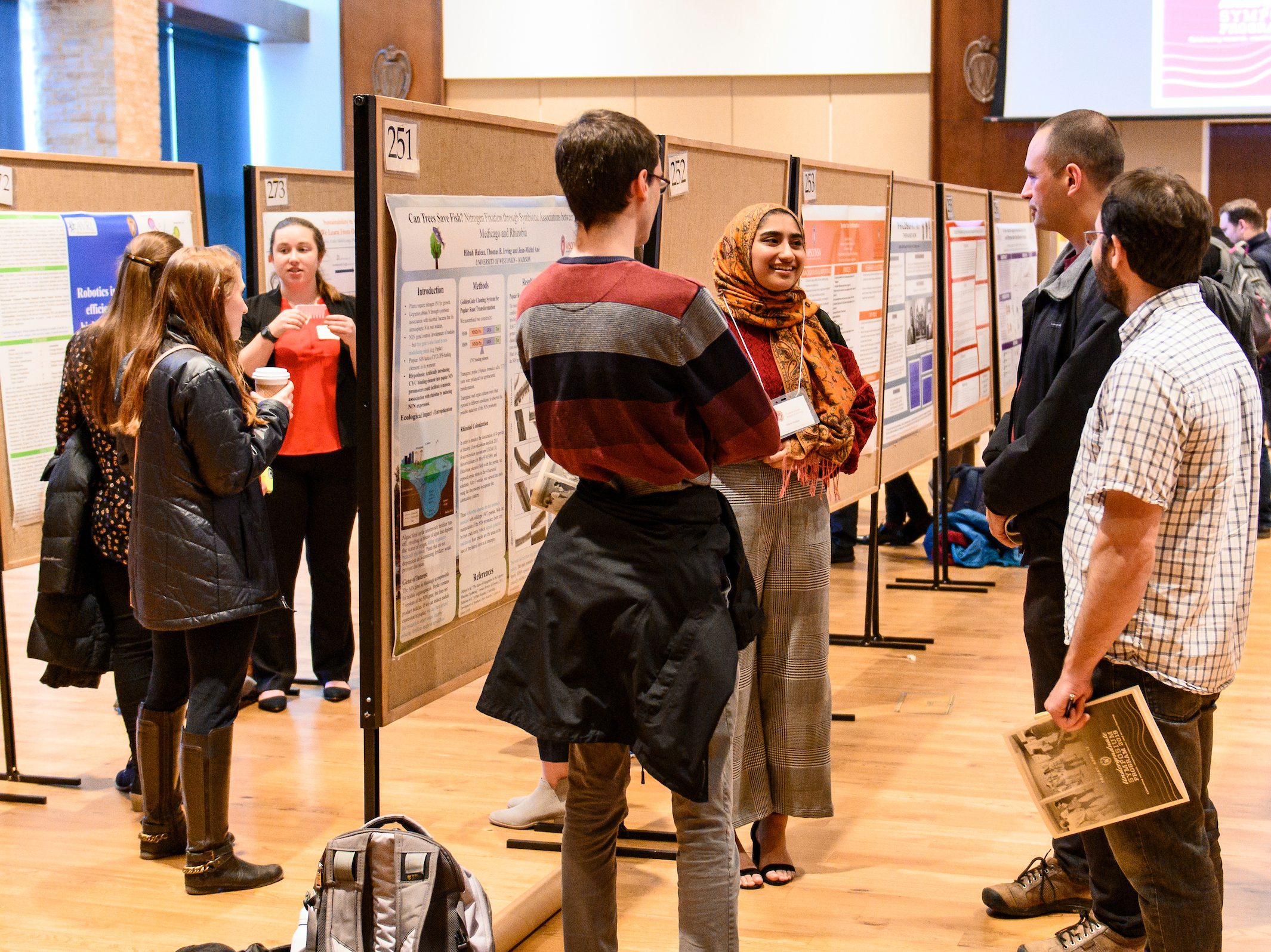Last Updated on December 15, 2022
When searching the internet for required information, not always will it yield the correct answer. This is mostly because the internet is filled with lots and lots of information that are often not from reliable sources. If you have been searching for information about online phd environmental sociology, then this article below contains all you need to know and more.
Collegelearners provides the finest and latest information on online phd environmental sociology as well as information about environmental justice certificate online, environmental sociology major, sociology and environmental sustainability, why is environmental sociology important. You can also find up-to-date and related articles on Collegelearners.
Have you ever considered the relationship between human behavior and environmental degradation? Do you feel prepared to evaluate public policies for safeguarding our natural environment and resources? With Capella’s online Ph.D. in Environmental Sociology program, you will be prepared to take on leadership roles tackling these important issues.

Why an Environmental Sociology Degree?
Sociology is the study of collective behavior. Environmental sociology is a specialization dealing with the interactions between groups and their environments. Students and practitioners study the social dimensions of environmental problems, such as climate change, resource depletion, pollution, and environmental injustice. Their research attempts to understand why groups make environmentally destructive choices, and discover ways to alter such collective behavior.
Environmental Sociology Undergraduate Programs
Environmental sociology is a specialized field. For this reason, undergraduate degrees in environmental sociology specifically are rare. Most students earn generalized degrees in sociology. A growing number of sociology departments, however, are now offering concentrations in environmental sociology.
Sociology programs generally include required coursework on quantitative sociological analysis and research design, as well as electives on social problems, criminal justice, policy, economics, community development, and class, race, and gender. Programs with concentrations in environmental sociology may offer additional courses on environmental justice, development and underdevelopment (of countries), and the sociology of environmental problems.
A bachelor’s degree is usually just the beginning for sociologists; due to the amount of research involved, most jobs in sociology require advanced degrees. Some sociology graduates find work in non-research positions at social services agencies, nonprofit organizations, or businesses, though often not in environment-related positions.

Master of Science vs. Doctor of Philosophy in Environmental Sociology
Master of Science in Environmental Sociology
Some institutions offer a standalone Master of Science (MS) in Sociology with a concentration in environmental sociology, while other schools may primarily accept PhD students in the field, but allow them to end the program after earning their MS. These programs may range from about 24 to 32 credits, which may or may not include research credits for a thesis, and some programs may offer a non-thesis option that requires additional coursework. These degree programs can usually be completed in 2 years, may require a final oral exam and typically offer unique research opportunities, such as interdisciplinary research projects with ecological scientists. Students in these programs are likely to take courses and/or seminars in research methods, statistics, sociological theory and environmental sociology. It is fairly common for graduates of this degree program to pursue further education at the doctoral level, but students may also work in academia, government agencies, non-profit organizations or corporations.
Doctor of Philosophy in Environmental Sociology
Students may choose to pursue a Doctor of Philosophy (PhD) in Sociology with a concentration or research focus in environmental sociology that may be completed in as little as 4 years. These degree programs may require as much as 91 credit hours beyond a bachelor’s degree and around 60 credits beyond a master’s degree. Typically, students in these programs need to complete a minor or multiple comprehensive areas of study, preliminary exams and a dissertation and may be able to focus their research in a wide range of areas, like environmental justice, global environmental change, environmental organization networks or environmental inequalities. Coursework for these programs also usually include topics in research methods, statistics, sociological theory and environmental sociology, but may also include specific courses in topics such as environmental justice, international issues in environmental sociology or social problems and population that align with their research interests. It is fairly common for graduates of these PhD programs to conduct research and teach at an advanced level, but graduates may also find careers as program managers, policy analysts and other leadership positions in the government, non-profits or other business organizations.
Common Entrance Requirements
Some graduate programs in sociology may allow admission for students in the fall and/or spring semesters and typically require students to have at least a bachelor’s degree. Some programs may also like to see prior coursework in areas such as algebra, research methods, sociological theory and statistics and may have a minimum GPA requirement, which usually falls around a 3.0. Students usually need to take the GRE and may need to fill out a separate application to apply to the institution and one to apply to the sociology department and program. Common application materials for these programs include transcripts, letters of recommendation, a personal statement and/or a resume or CV. Some programs may also ask for a writing sample.
Students may earn an MS or PhD in Sociology and focus their studies in environmental sociology to prepare for careers in academia, the government and more. Usually these programs require a culminating paper and provide interdisciplinary research opportunities.

Best Online PhD in Sociology
With an online PhD in Sociology, you may earn a respected degree in a manner that suits your on-the-go lifestyle.
Earning a doctorate in sociology can help prepare you to accept academic positions or to serve as a leader in government, business, or nonprofit organizations.
By going through an online doctorate program in sociology, you may sharpen your research skills. With this terminal degree, you may also prove yourself an expert in social dynamics and may set yourself up for a rewarding career inside or outside of academia.
Online PhD in Sociology Programs
A terminal degree in sociology can help pave the way for an academic career or a leadership role in government or the private sector.
Since a PhD is the top degree in this field, many schools expect students to have a master’s degree before diving into more advanced studies. If you don’t yet hold a master’s degree, you may be able to earn one in conjunction with your doctoral studies at select schools.
During a sociology doctoral program, you’ll often study the ways that people behave and interact in society and organizations. Most students take one or more courses on the major theories in sociological thought.
Research is a critical component of earning a PhD, so you’ll probably take several classes dedicated to enhancing your research skills. You may learn to perform statistical analysis, conduct interviews, and write scientific papers.
Most PhD candidates choose a particular focus area for their studies. Options at your school may include urban development, politics and government, race and equality, family structure, healthcare, or religion. Some universities may allow you to choose two specialization areas.
The focus you choose may influence your PhD coursework. Possible class topics could include gender, race, family, and class structure. You might also gain new insights into political systems or regional development. Other courses in your school’s sociology department may address immigration, aging, or crime.
Once you’ve completed your coursework and successfully defended your dissertation, you might secure a job in academia. If you’re working for a college, your responsibilities may include teaching classes and conducting research.
Sociology jobs may also be found in other sectors. You might work for a think tank to produce sociological insights that inform policy decisions, head up a social services agency, or spearhead initiatives that support urban development.
Other jobs may be available in marketing, human resources, or publishing. For those roles, you might lean heavily on the research and communications skills that you may acquire during your doctoral program.

Sociology Careers & Salaries
Many people equate a Ph.D. in Sociology with an academic career. That’s not an unreasonable assumption. Most people with this degree do pursue academic work after graduation.
In higher education institutions, you may serve on the faculty or carry out research. With a PhD, you may eventually qualify for a tenured position. Not all graduates have their sights set on an academic track, though. If you start exploring the opportunities for sociologists outside of higher education, you might find a variety of intriguing possibilities.
Universities aren’t the only organizations that hire sociologists and other social scientists. Government agencies, private research organizations, and think tanks rely on these experts too. Your skills in data collection and research may translate into a career as a professional who analyzes market demographics or designs insightful survey questions.
According to the Bureau of Labor Statistics, sociologists earn an average annual salary of $86,110. Various jobs you may pursue with a sociology PhD include:
| Careers | Annual Median Salaries |
| Human Resources Managers | $121,220 |
| Social Scientists and Related Workers | $87,260 |
| Sociologists | $86,110 |
| Urban and Regional Planners | $75,950 |
| Postsecondary Sociology Teachers | $75,610 |
| Social and Community Service Managers | $69,600 |
| Writers and Authors | $67,120 |
| Market Research Analysts | $65,810 |
| Editors | $63,400 |
| Survey Researchers | $59,870 |
Sociologist jobs are growing at the average 4% rate, but other roles are increasing significantly more quickly. For example, the Bureau of Labor Statistics is predicting an 18% growth rate for market research analyst positions.
Your sociology training may help prepare you to understand the ways that people respond to life circumstances and interact in relationships. That knowledge might be advantageous for a career as a human resources manager or a nonprofit director. It might also be useful in an urban planning role.
Doctoral programs emphasize writing and communication skills. Publishing companies might appreciate such abilities and hire you to work as a writer or an editor. You may be involved with publishing texts related to your area of training or other types of books.
Your sociology background may also lead to a career as a counselor or a high school teacher. Additional training and certification would be required, though.
Sociology Doctoral Curriculum & Courses
You’ll earn credits for your online PhD degree in sociology by taking classes and completing your doctoral dissertation. The courses in your program may include:
- Criminology: You’ll study theories about the criminal mind and criminal behavior, and you may also explore how governments respond to crime.
- Family Structure: Your time in this course may survey various family structures and consider how family relationships influence children’s outcomes.
- Gender Topics: This class may discuss how perceived gender roles affect society or compare attitudes toward gender in various societies.
- Inequality in Society: You’ll explore how gender, race, ethnicity, sexuality, class, and other factors lead to societal rankings and divisions.
- Politics and Sociology: A political course may cover the ways that sociological theories intersect with governing and leadership decisions around the world and in your local community.
- Race and Racism: You will learn how historical racial issues and contemporary views on the matter affect people and shape communities.
- Research Methods for the Social Sciences: In preparation for your dissertation, you’ll study quantitative and qualitative approaches to conducting research.
- Rural Studies: This course will provide insights into contemporary rural communities and how to foster regional development.
- Social Theories: Early in your doctoral studies, you may take a class that covers the teachings of various classic and contemporary thinkers in the field of sociology.
- Urban Studies: You’ll investigate how metropolitan regions develop and consider how to shape effective policies for urban areas.
You may have the option to take electives from the sociology department or other departments whose courses align with your interests and career goals.
Admissions Requirements
Admission to a sociology PhD program can be competitive. If you want to earn your doctorate, you’ll often need to showcase your strengths through materials like:
- Essay that states your sociology goals
- Letters of reference from supervisors
- Resume or curriculum vitae that shows your educational and work history
- Transcripts that list previous undergraduate and graduate work
Whether you need to submit GRE scores varies from one institution to the next. While it’s a firm requirement at some schools, other colleges don’t take standardized tests into account. Some list test scores as an optional requirement or grant waivers to qualified applicants.
Accreditation
One of the most important factors to consider when comparing sociology PhD programs is whether the schools hold regional accreditation.
All reputable colleges are approved by one of the seven regional accrediting agencies in the US. Regional accreditation means that you can count on a college to provide a sound education. Your coursework is more likely to transfer to another school.
Academic institutions and employers will likely recognize your status as an expert who’s earned the highest possible degree in this field.
Financial Aid and Scholarships
There are steps you may take to secure funding assistance for your doctoral studies in sociology.
Government student aid is a primary source of assistance for many graduate students. To learn whether you qualify, you can fill out the Free Application for Federal Student Aid (FAFSA). You may also be able to receive state loans or other types of government funding, such as federal work-study or state grants.
Private sources of assistance may include scholarships and fellowships. These financial gifts may help subsidize your tuition or your research. You can apply and may receive these awards if you’re selected as a recipient.
Your college might be another potential source of tuition help. Some doctoral programs grant stipends to students who work as teaching or research assistants. Finally, your employer may be a valuable contributor to your academic pursuits. Workplaces often help fund studies that can benefit the organization.
What Can You Do with a PhD in Sociology?
Working in academia is a popular career option for people with doctoral degrees in sociology. You might teach or conduct research at a college.
According to the Bureau of Labor Statistics, sociology department faculty earn between $38,910 and $145,990 each year. Sociologists may also work as researchers in nonacademic settings.
The Bureau of Labor Statistics says that 38% of sociologists are employed in research and development organizations, and 15% are employed by state governments. Self-employment may be an option for sociologists as well.
Other job options may include urban planner, market research analyst, human resources director, and social services manager.
How Much Do You Make with a PhD in Sociology?
Based on figures from the Bureau of Labor Statistics, the average annual salary for a sociologist is $86,110. The typical salary ranges from $52,640 to $143,020.
Some of the highest sociology earnings are in research and development firms. The median salary for sociologist jobs in that sector is $96,620. State government agencies come in as a close second with average annual earnings of $92,530 for sociologists.
Working as a human resources manager may be a top-paying career prospect for those with a sociology background. Those jobs often pay between $71,180 and $208,000. HR managers in scientific or technical organizations may bring in an average salary of $138,030 each year.
How Long Does It Take to Get a PhD in Sociology?
The length of time required for sociology doctoral programs varies from one student to the next.
The coursework typically takes 2 to 3 years, but you may be able to shorten that timeframe by enrolling in an accelerated sociology degree online program at an accredited university. After wrapping up the coursework, you may work on your dissertation, which can take longer for some students than for others.
Getting a PhD is often a 3 year to 5 year process. Some students need as few as 4 years or as many as 8. Earning a master’s on the way to getting a doctorate may extend your program by about 2 years.
What Is the Difference Between Sociology vs. Psychology?
Sociology and psychology are both considered social sciences. In either field, you’d study people and their behaviors and interactions. Sociology deals with these topics on a larger scale. The focus is on interactions and dynamics that shape major institutions, communities, and society as a whole.
Psychologists address interactions on a more personal level. The individual is the main focus of psychology studies. At times, psychologists do explore group dynamics, but the groups are usually small in size and limited in scope.
For example, psychologists might study individual families’ interactions while sociologists might investigate how family structures shape society.
Is a PhD in Sociology Worth It?
Yes, a sociology Ph.D. is worth it for many students. The Bureau of Labor Statistics is projecting 5% job growth in life, physical, and social science occupations over the next 10 years. Common careers in this field include sociologist, sociology professor, survey researcher, market research analyst, and community services manager.
The work that sociologists do may have far-reaching effects. As a researcher or a practitioner in this field, you might influence policies or make decisions that increase social equity or improve community life for many people.
Universities Offering Online PhD in Sociology Degree Programs
Methodology: The following school list is in alphabetical order. To be included, a college or university must be regionally accredited and offer sociology degree programs online or in a hybrid format.California Institute of Technology

The Doctorate of Sociology program at the California Institute of Technology usually takes three years to complete. It is uniquely designed to address subjects related to law, economics, history, anthropology and political science.
Students are encouraged to start their research early and to connect with mentors who can help them with post-graduation employment opportunities.
Caltech is accredited by the WASC Senior College and University Commission.Capella University

Capella University offers a PhD in Human Services program that combines core classes with electives, specializations, research seminars, and dissertation preparation. Everything is online, including virtual simulations of real-world scenarios that students might encounter in the future. The program consists of 77 quarter credits.
Capella University is accredited by the Higher Learning Commission.Colorado State University

Colorado State University has multiple specializations for its PhD of Sociology program. These include Food and Agriculture, Crime and Law, Environmental and Natural Resources, and Social Justice and Governance.
Students are expected to learn both theory and practice as they explore everything from research methodologies to contemporary practices in human services.
Colorado State is accredited by The Higher Learning Commission.Johns Hopkins University

There are two doctorate-level sociology programs at Johns Hopkins University: the Program on Global Social Change (PGSC) and the Program on Social Inequality (PSI). There’s also a joint program that combines sociology with applied mathematics and statistics.
Depending on your area of focus, you can study things like globalization, diversity, government reform, and linear models for social sciences.
The Johns Hopkins University is accredited by the Middle States Commission on Higher Education.Louisiana State University

The PhD of Sociology program at Louisiana State University offers a well-rounded curriculum in theory, practice, research, tools, and methods. The program usually requires five years to complete.
Students are encouraged to choose a specialty area and work with faculty advisors to prepare grants, co-author papers, and make presentations at industry conferences.
Louisiana State University is accredited by the Southern Association of Colleges and Schools Commission on Colleges.University of Iowa

The University of Iowa offers both a Master’s and a PhD in Sociology. Classes are available online or in person, and subjects cover topics such as economics, policy, inequality, global affairs, and human rights.
Students are encouraged to choose a focus area for their studies to maximize their opportunities for research and employment.
The University of Iowa is accredited by the Higher Learning Commission.University of New Mexico

Though it doesn’t offer a separate PhD program for sociology, the University of New Mexico offers a combined master’s and PhD program for extended graduate-level study. From statistics to methods of social research, a variety of important topics in sociology are covered in this well-rounded program. Online classes must be approved by the faculty.
UNM is accredited by the Higher Learning Commission.University of Tennessee – Knoxville

The University of Tennessee, Knoxville offers a PhD in Sociology program that consists of 51 credits. These are halfway divided between graduate coursework and dissertation research and preparation.
Specializations include Criminology, Political Economy, Environmental Sociology, and Critical Race and Ethnic Studies.
The University of Tennessee – Knoxville is accredited by the Southern Association of Colleges and Schools Commission on Colleges.Walden University

Walden University offers a hybrid degree program that is designed to prepare students for a variety of health services careers. This program is a mix of online coursework and real-world residencies.
It’s a PhD in Social Work rather than Sociology, but many of the subjects and skills are also relevant to sociology students. It includes specializations in sociology-related concepts, such as public policy and administration.
Walden is accredited by The Higher Learning Commission.Wilmington University

Wilmington University offers a unique doctorate program for students interested in social science called Prevention Science.
This program focuses on identifying and evaluating the various personal, financial, and social risks faced by individuals and families within broader communities. Classes are 100% online, and students can create their own study areas or choose from pre-established ones.
Wilmington University is accredited by the Middle States Commission on Higher Education.
Getting Your PhD in Sociology Online
A sociology PhD is a terminal degree that can help equip you for a career as a professor or a practitioner. With this degree, you might teach college courses, lead research studies, influence policies, or head up nonprofit institutions.
Getting your doctorate in sociology online, much like getting an online masters in sociology, may help you balance your professional obligations with your educational endeavors. Through online studies, you may take classes, communicate with your professors, and complete your dissertation from afar.
I

